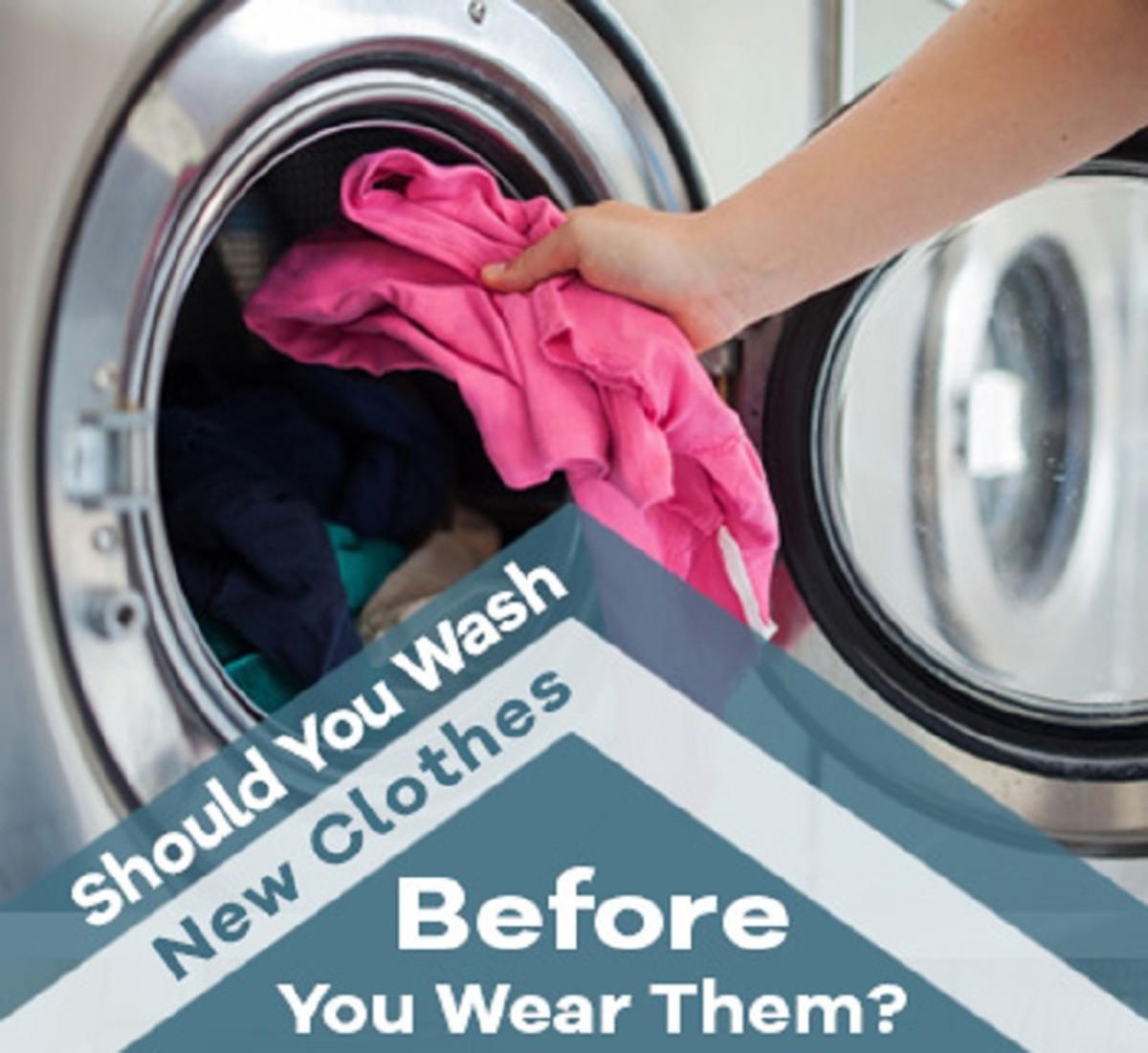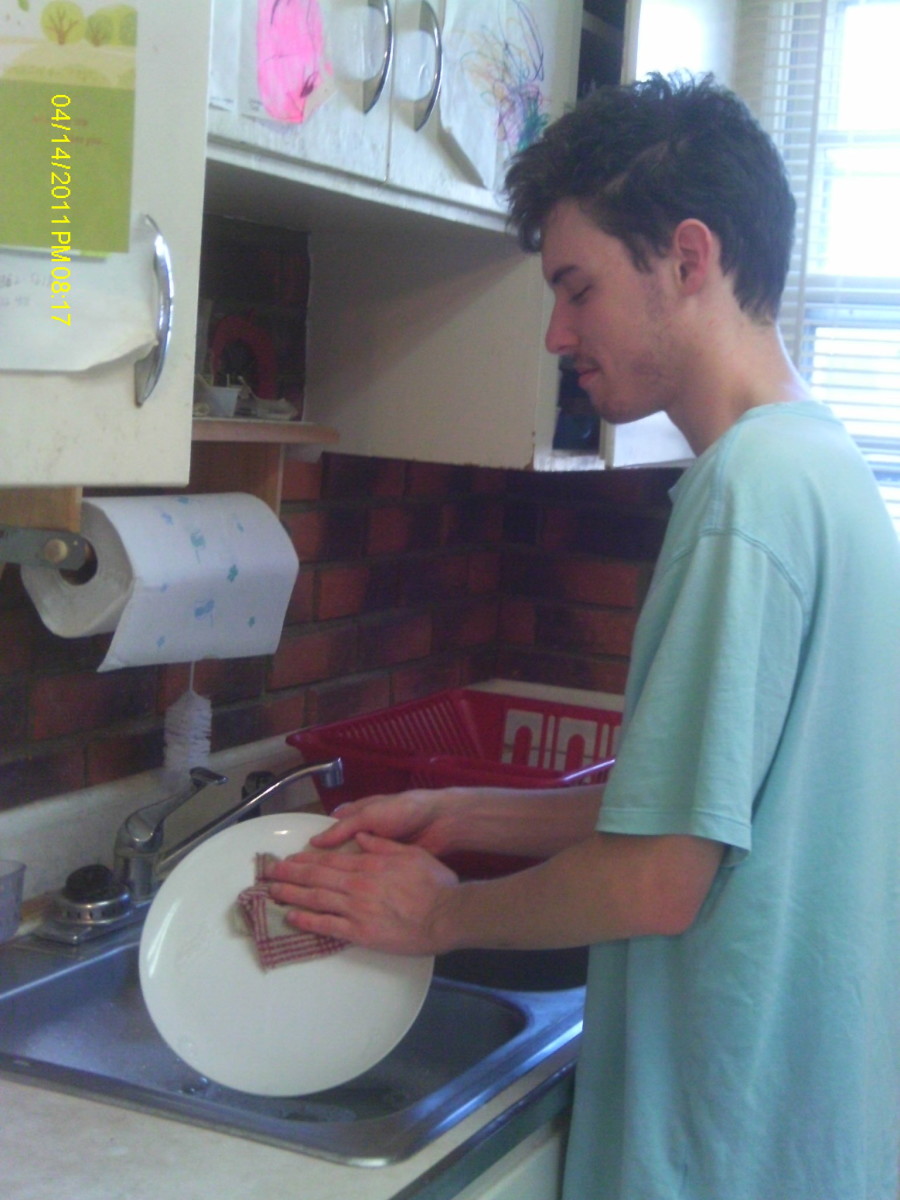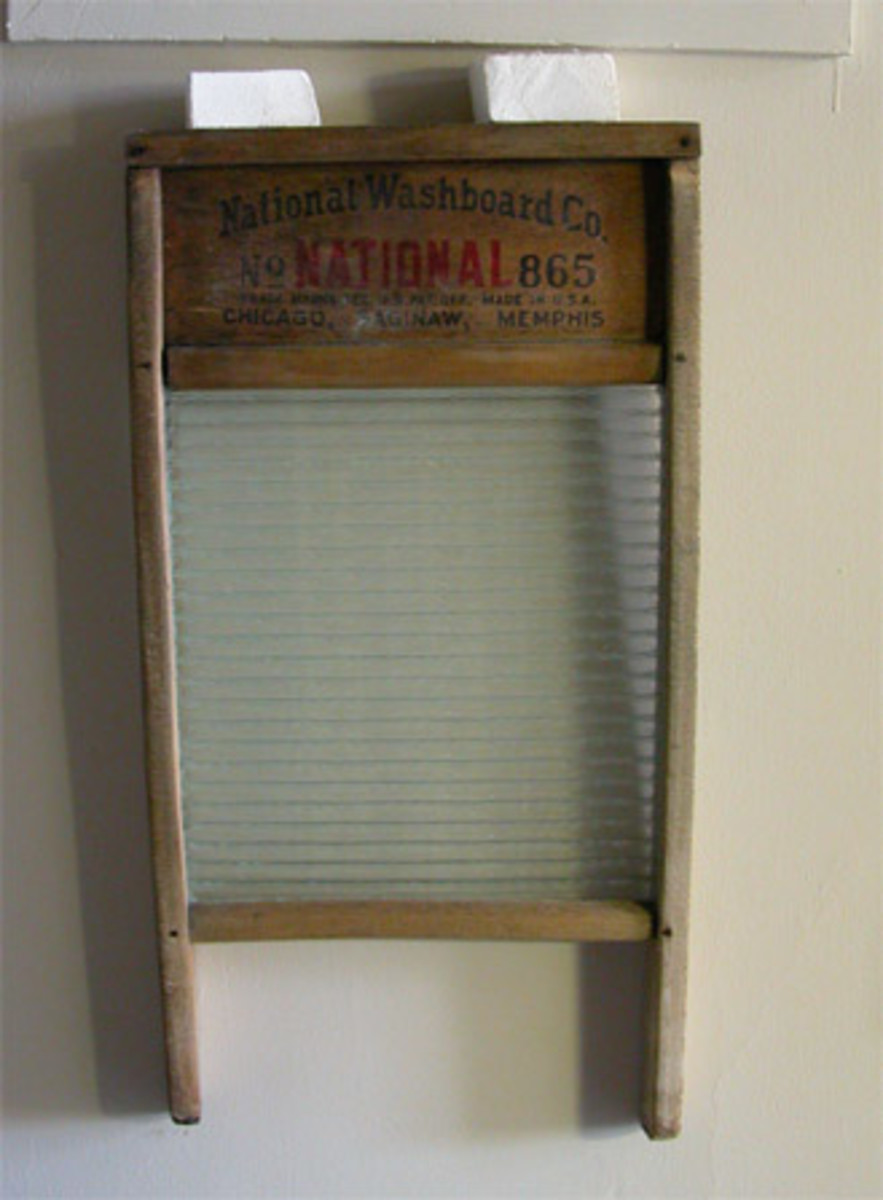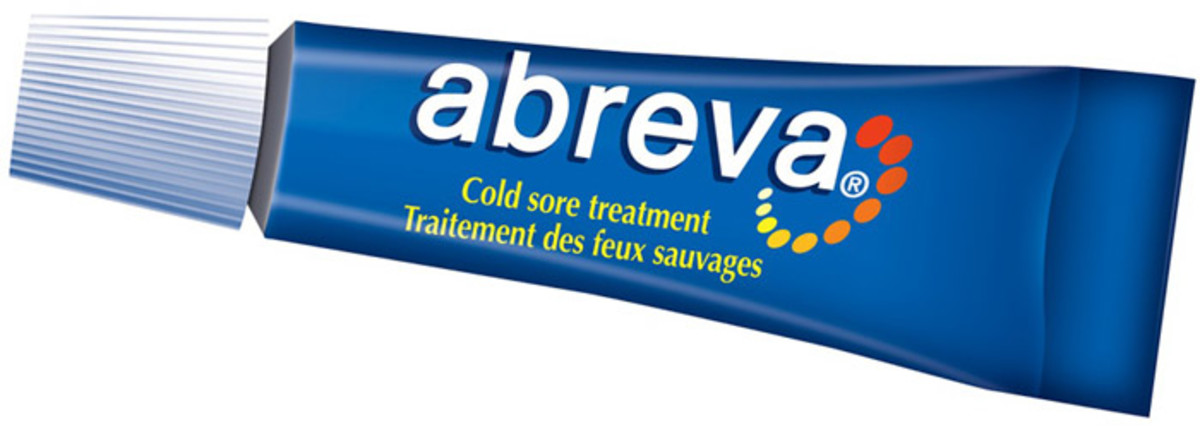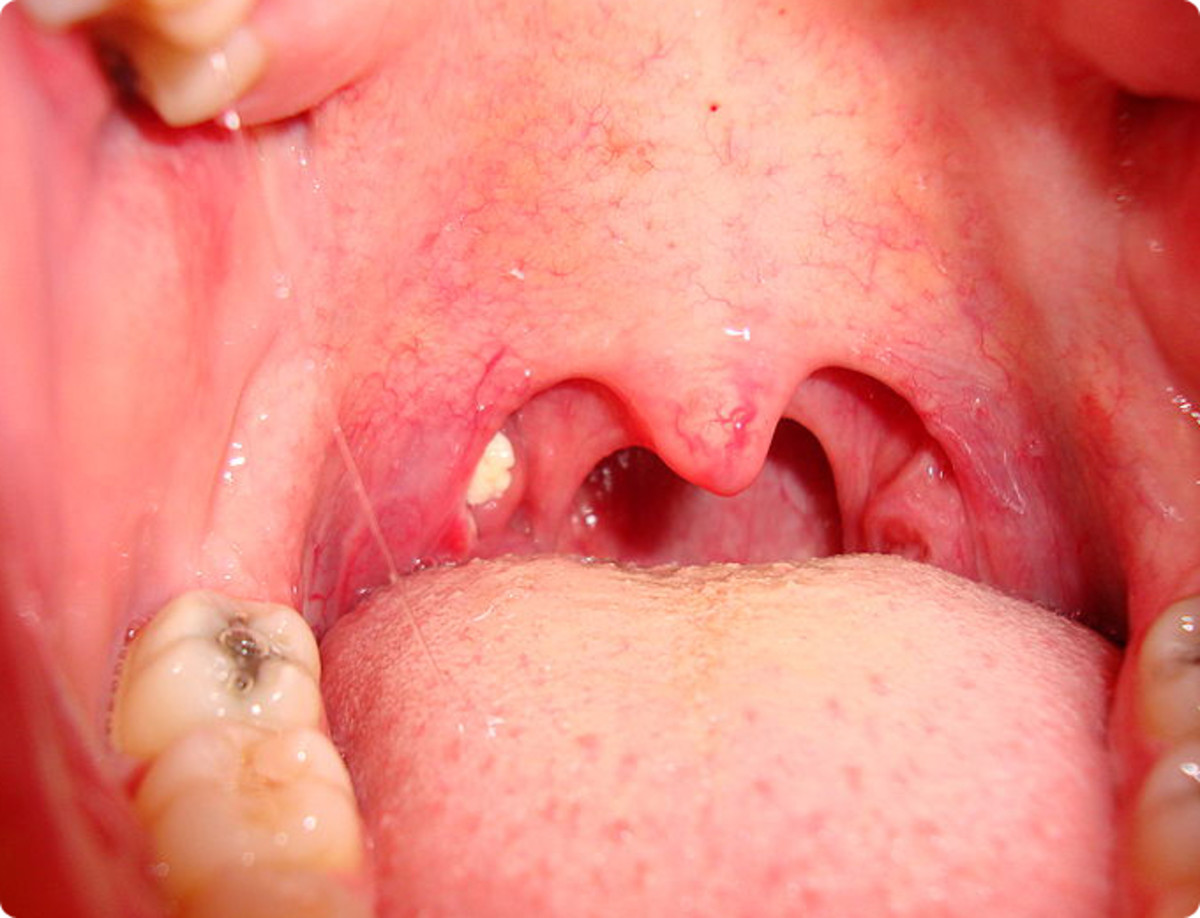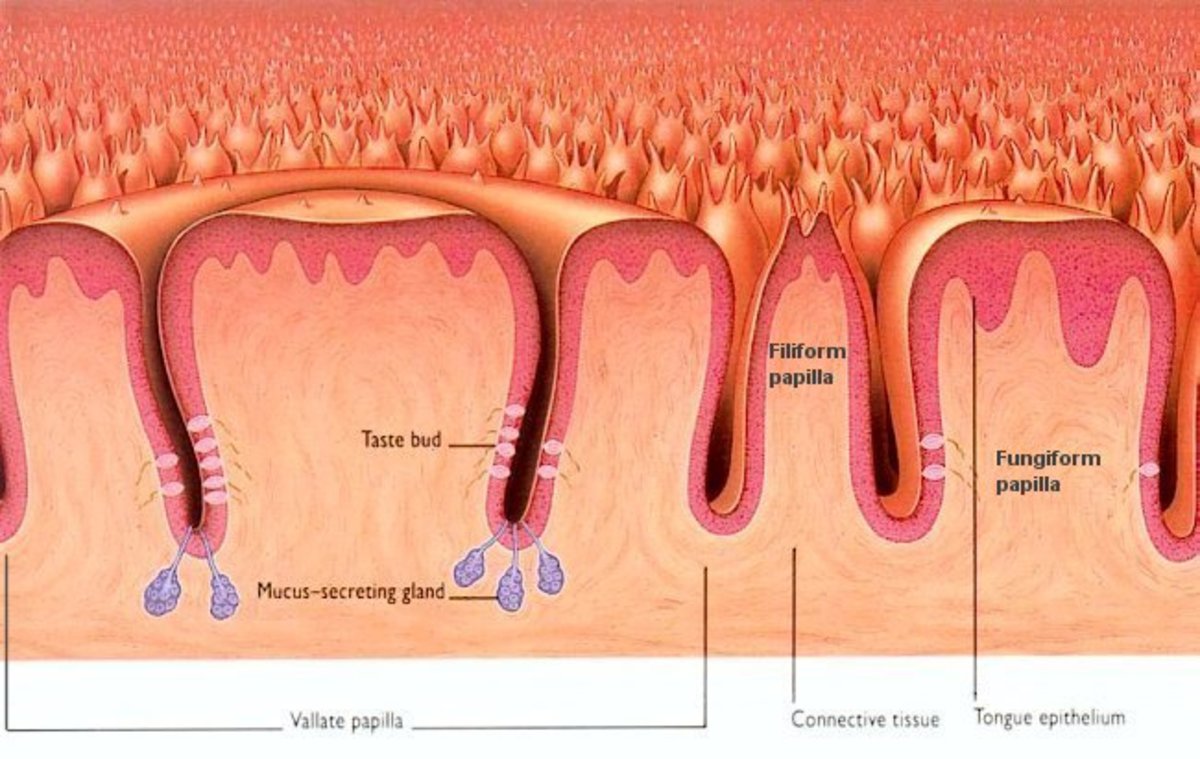Washing Your Hands Is Your First Defense Against Illness – Wash Your Hands Often and Correctly For Optimum Benefit
Most of us engage in dozens of activities everyday that expose us to all kinds of infectious bacteria, viruses, and fungi. The best protection against disease is also the easiest and least expensive step we can take – wash our hands!
Below is a video instructing CNAs (certified nursing assistants) on how to correctly wash their hands. Even though it is intended as instructions for CNAs, I felt it was the best video of all those available on the subject of hand washing on YouTube. It is thorough and the instructions are very clear. Following the instructions you see here will give you and your family the best protection hand washing can provide.
Follow the procedure demonstrated in this video to kill and remove as many germs as possible, helping you to protect yourself and your family from illness
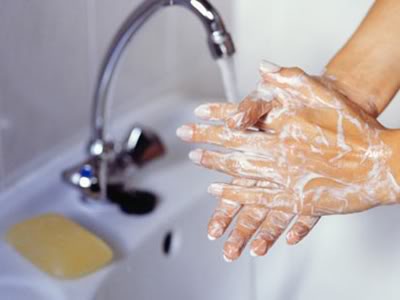
Should You Wash Your Hands In Cold, Warm, or Hot Water? Which Is Best?
In one of my classes at the university on health issues and nutrition, my instructor informed our class that cold water was just as effective for washing hands in most cases as hot water. She said that in fact no human could safely wash their hands in water that is hot enough to kill germs anyway.
If your hands are dirty, greasy, or grimy, warm water, or the hottest water you can reasonably tolerate will be more effective in removing the dirt and grease, but if your hands are not visibly dirty, cold water is just as affective as warm or hot water for removing germs. Some institutions, such as the university I attend, no longer provide hot water from the faucets in their new buildings as a result.
Missy Walton, Medical Technologist and Phlebotomist at Wol+Med Back & Neck Pain Center in Denton Texas says that in her instruction for obtaining certification for the medical procedures and services she now performs, she learned that rubbing your hands together vigorously for at least 20 seconds (as shown in the above video), is more effective in killing germs than the temperature of the water. Water will help wash the germs off, but rarely kills the germs. It is the vigorous rubbing of the hands and the soap that kill more germs than anything else in the hand washing process.
Examples Of Bad Hand Washing Habits I Have Personally Observed
Having seen and heard what I think were some incredible things over the years regarding hand washing, I hope this hub will encourage everyone to do the one simple thing that can protect their own, and their family’s health, and that can stop illness and disease before it has a chance to get started.
A few years ago I was in a well-known discount store with my daughter who was then eleven years old. Halfway through our shopping she needed to use the restroom. I went with her and stood near the entrance door to the restroom while I waited for her.
While I was waiting, perhaps 10 minutes total, I watched the other women who came in to see what they would do on their way back out the door. A total of 23 women of all ages entered and left the restroom while I was there. Of those 23 women, only 3 made any attempt to wash their hands before leaving the restroom.
One of the young women who appeared to be late teens early 20s, left without so much as a glance towards the sinks where you might expect her to wash her hands before returning to work, was wearing the uniform of a fast-food restaurant within the discount store. She was in a hurry. Too much of a hurry to be bothered to think about washing her hands let alone do it. Clearly, she had no consideration for herself or the customers she was going back to work to serve.
Of the 3 women who did make an effort to wash their hands, only one did so correctly. One of the women ran her hands under the water from the faucet for a couple of seconds and then grabbed a paper towel to dry them and was back out the door. This last example is a total waste of time and water, because it accomplishes nothing.
Another of the 3 women who bothered to make an attempt to wash her hands also ran her fingers quickly under some running water and then wiped/dried her hands on her own clothes. Touching the faucet handles after washing one's hands also re-infects one's hands as they have presumably been touched by dozens of poorly washed hands. You should use a paper towel to turn the faucets off if they do not automatically shut off on their own.
A third woman wet her hands, soaped them up well and rubbed them together vigorously for a few seconds, rinsed them, and then turned and used her elbow to push the lever on the paper towel holder to get a clean paper towel to dry her hands. She was wearing long sleeves so her elbow never actually touched the lever on the paper towel holder. She let the water run while she did this. When she had finished drying her hands, she pushed the lever again, this time with her hand holding the used paper towel.
With the new clean paper towel she shut off the faucets and then used the same paper towel again to protect her hand from germs as she opened the restroom door to leave. She stopped for just a moment and held the door open with her back against it while disposing of the paper towel in a trash can near the restroom door as she was leaving. Not perfect, but a pretty good job, and the best hand washer of the 23 women.
At two different work places for two different employers, female coworkers have told me they never wash their hands in a public restroom. They stated that they believed when they washed their hands in a public restroom that their hands were dirtier after washing than they had been before washing, even though they had used the toilet.
More recently, I was in a restaurant working as a supervisor for a special needs young woman who was learning how to do her job. I made a trip to the restroom to wash my hands. Upon entering the women’s restroom, I practically collided with one of the regular female workers who had just shot out of one of the toilet stalls and was hurriedly heading back out to resume her food server activities! Without washing her hands!! She never went near the sink.
Why Do So Many People Hate Washing Their Hands?
Hand washing would seem to not only be a mystery to many people – in other words they do not know how to do it correctly – but it would also seem that it is a popular aversion, meaning no one likes to do it, and most people avoid it.
I rather think it is not obesity that is running the healthcare costs in our society up, but more probably the fact that 90% of people DO NOT WASH THEIR HANDS. Not even after using the toilet!!
News21: “Salmonella, E. coli, campylobacter and listeria monocytogenes live in the intestines and feces of animals and humans without harming them. But when very tiny amounts of feces touch food, microscopic pathogens are passed along.”
Also from News21: “People also can spread pathogens to food with dirty hands contaminated with tiny amounts of fecal matter when they used the restroom, changed diapers, or handle animals.”
Symptoms of Food Poisoning Caused By Feces In Food
eMedicineHealth states: “Symptoms of food poisoning depend on the type of contaminant and the amount eaten. The symptoms can develop rapidly, within 30 minutes, or slowly, worsening over days to weeks. Most of the common contaminants cause:
Nausea
Vomiting
Diarrhea
Abdominal cramping and fever
If you notice any of these symptoms soon after eating, whether you ate at home or in a restaurant, you may suspect you are a victim of food poisoning. Food poisoning may occur either because the food was not handled properly -- keeping it at the right temperature, covered, or free of bacteria/viruses through handlers making sure their hands were clean.
When To Wash Your Hands
The first step in preparing any recipe or food dish should always be WASHING YOUR HANDS.
Always wash your hands before preparing food, eating food, emptying clean dishes from the dishwasher.
Always wash your hands before dispensing medicines to a family member or anyone.
Make sure your hands are clean before you handle your baby. Always wash your hands after changing diapers.
Always wash your hands after handling or petting an animal, or handling pet food, pet treats, or pet toys.
Always wash your hands after cleaning up a dirty floor or other area, after handling garbage, dirty laundry, and after gardening.
Always wash your hands after touching a sick person or their belongings or after tending to a cut or a wound whether it’s your own or someone else’s.
Always wash your hands after returning from a public place – stores, libraries, doctor’s offices or hospitals, night clubs, restaurants, or ANY public place.
Always wash your hands after blowing your nose, coughing, sneezing or after using the restroom.
Why You Should Wash Your Hands
The CDC (Center For Disease Control and Prevention) states: “Keeping hands clean through improved hand hygiene is one of the most important steps we can take to avoid getting sick and spreading germs to others.
Many diseases and conditions are spread by not washing hands with soap and clean, running water. If clean, running water is not accessible, as is common in many parts of the world, use soap and available water.
If soap and water are unavailable, use an alcohol-based hand sanitizer that contains at least 60% alcohol to clean hands.”
Keeping your hands clean can be a matter of sickness or health, life or death, not only for you, but also for your family. Take a minute to protect yours and your family’s health through the simple and inexpensive act of washing your hands.
© 2012 C E Clark


